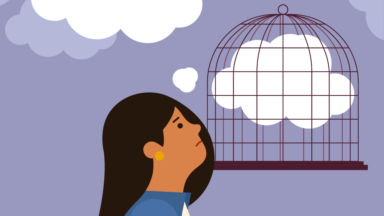
Have you ever noticed how a good night’s sleep can make you feel more refreshed, focused, and emotionally balanced? Sleep plays a pivotal role in our mental well-being, and the relationship between sleep and mental health is profound. In this blog post, we’ll explore the intricate connection between sleep and mental health, shedding light on how sleep impacts your emotional state, cognition, and overall mental well-being. Understanding this connection can empower you to prioritise quality sleep for a healthier mind.
The Sleep-Mental Health Connection
Sleep and mental health are deeply intertwined, with each affecting the other in various ways:
Mood Regulation: Sleep is essential for mood regulation. Adequate sleep helps regulate emotions and reduces the risk of mood disorders like depression and anxiety.
Stress Management: Sleep is a natural stress reducer. When you’re well-rested, you’re better equipped to cope with daily stressors and life challenges.
Cognitive Function: Sleep is crucial for cognitive functions such as memory, attention, problem-solving, and decision-making. Sleep deprivation can impair these functions, affecting your ability to think clearly.
Emotional Resilience: Quality sleep enhances emotional resilience, helping you manage and bounce back from difficult situations.
Mental Health Conditions: Sleep disturbances, including insomnia and sleep apnoea, are common in individuals with diagnosed mental health conditions. Addressing sleep problems can improve the management of these conditions.
Sleep as a Diagnostic Tool: In some cases, sleep patterns can be indicative of underlying mental health problems. Changes in sleep patterns, such as excessive sleep or insomnia, may be an indicator that you are struggling and need some extra support.
Medication and Sleep: Some medications used to manage mental health conditions can impact sleep patterns. Discuss any sleep disturbances with your GP, who can adjust your treatment plan if necessary.
Improving Sleep for Better Mental Health
Now that we’ve explored the profound connection between sleep and mental health, here are some tips to help you improve your sleep for a healthier mind:
Establish a Routine: Maintain a consistent sleep schedule by going to bed and waking up at the same times each day, even on weekends.
Create a Relaxing Bedtime Routine: Engage in calming activities before bed, such as reading, taking a warm bath, or practising relaxation techniques like deep breathing.
Limit Screen Time: Avoid electronic devices, such as smartphones and computers, at least an hour before bedtime, as the blue light can interfere with sleep.
Create a Comfortable Sleep Environment: Ensure your bedroom is dark, quiet, and at a comfortable temperature. Invest in a comfortable mattress and pillows.
Limit Caffeine and Alcohol: Avoid consuming caffeine and alcohol close to bedtime, as they can disrupt sleep.
Stay Active: Regular physical activity can improve sleep quality. Aim for at least 30 minutes of moderate exercise most days.
In summary, sleep and mental health share a powerful and intricate connection. Quality sleep is essential for regulating emotions, managing stress, and supporting cognitive function. Prioritising good sleep hygiene and addressing sleep disturbances can have a positive impact on your mental well-being. If you’re experiencing persistent sleep problems that affect your mental health, you may benefit from a Cognitive Behavioural Therapy treatment like Sleepio. Cognitive Behavioural Therapy for Insomnia (CBT-I) is a highly effective and non-drug treatment option that addresses the root causes of insomnia and helps you regain control of your sleep.
Sleepio works with you to develop a personalised insomnia treatment plan, empowering you to challenge negative thought patterns, establish healthy sleep habits, and enjoy restful nights of sleep.

Here’s our latest

Why Am I Tired All The Time?
Feeling tired is something we all experience from time to time, but what happens when it becomes a constant companion?…

Diazepam and Insomnia
Diazepam, also known as Valium, is a type of medication called a benzodiazepine that is commonly used to treat anxiety…

Sleep After a Stroke: Stroke-Induced Sleep Disorders
Recovering from a stroke is a journey that comes with various challenges, and one of the often overlooked issues is…


